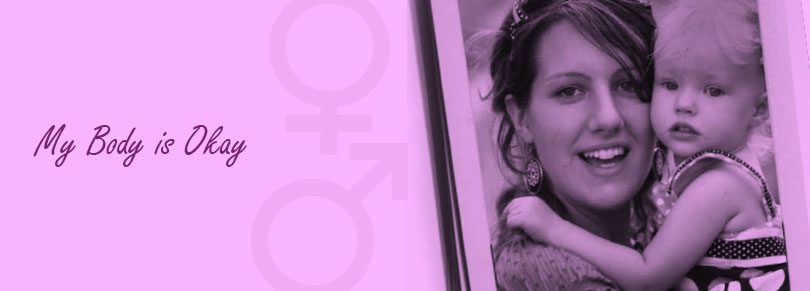Growing up, I was very shy about my body. I was never comfortable changing in front of my friends let alone talking about my body or sexuality. I still remember how much it all used to stress me out at that time. After my teens I slowly began to accept my body and myself. I started talking about sex with people I trusted. It made no sense to me anymore to keep all the doubts and confusion inside. So much tension and misguided shame about my body just melted away. What a relief!
Later on I pondered over how I could help my children to grow up accepting themselves. I definitely didn’t want them to experience all the tension I had concerning my body. And I also didn’t want for them to keep all their uncertainties and questions inside like I did. I realised I had to lay a foundation in my family; a foundation of freedom to talk about anything, without fear or shame; to have no taboos in our family. When I talk to them about their body, adolescence, sex, etc., I should not speak with guilt, awkwardness or be judgemental. I should talk about it with an acceptance of others and myself. In a setting like this, I am confident that they will be able to express their needs and ask the questions they have without any fear.
In order to speak so freely about it with our kids, we need to be comfortable with our body and natural sexual urges ourselves. We need to be able to talk about it comfortably with people we trust. I started speaking about it with close friends. It wasn’t easy since it felt so uncomfortable at first! When I met my husband, we started speaking about it too. I think as parents it’s wise to be on the same page and first talk about how you feel about your body, sexuality and sex before you start talking to your kids about it. Also, it would be helpful to know what you want to say and how far you want to go with the topic. I wouldn’t want my husband to be shocked with what I tell my kids and vice versa.
So, this all sounds good but how can I put it into practice? I am still a struggling parent who makes so many mistakes everyday but here are a few practical things that I think will help:
I want to teach them about sexuality during every day moments and use them as opportunities to talk about it. During bath time, changing diapers, seeing a pregnant woman, reading a book, etc.
I need to teach them all the names of all their body parts. Why did I teach my four-year-old daughter the name for her nose, but not for her genitals? If I want my children to grow up with acceptance for their own bodies, I should teach the actual names of all their body parts. Not talking about it implicates shame and without knowing the names, it will be very hard for her to talk about her body openly.
My life is their model
I should talk about sexuality without any shame or awkwardness myself. If I want them to be in total acceptance towards their body, I should set the example and talk about it in a manner that is completely normal to me; and respond as if they were asking about the weather. I know this will be a challenge the first few times, since we are not used to speaking about it so openly. But it will feel normal after a while. It will lay the foundations of open communication as they grow.
My relationship with my husband is the most important example of an intimate relationship that they have. I choose to show affection to my husband in the presence of my children.
I should start at a very early age. I can teach them the name of their intimate parts as soon as I am teaching the name for their nose. I can give my husband a hug or a kiss in front of my 3-month-old baby.
My child determines the pace. Of course I do not want to push all the ins and outs of intercourse onto my little children. Why should they start thinking about it when they are not interested in at all? So I will follow the interest of my children on the subject. I will give them a little bit information here and there and when they are ready to know more, they will ask. My answers on sexual issues will be honest, simple and short. I will not change the subject when she asks me about sex; this may give her the idea that it’s wrong to discuss such things with me. I will give a short and honest answer. I can add information to it over the years. I don’t have to give long or anatomic answers. A little piece of information will do. When my daughter asked me for the first time where babies come from I said: “they grow in a mother’s tummy.” If she asks later, again I could say: “every mommy has small eggs in her body and every daddy has small seeds in his body and if they meet a baby starts to grow.” And if she asks how they meet I could say: “the body of a mommy and a daddy fit like a puzzle, so the seed can meet the egg” or “mommy and daddy hold each other in a special way so a baby starts to grow”.
It’s not only about sex. Sex education is a whole set of different themes: to learn how to love yourself (including your personality, feelings and flaws) and to learn how to love others.
So, I decided to put some of this into practice. Last week I gave my four-year-old a bath and taught her the actual names of all her body parts. I felt a little awkward but kept a straight face and said it matter-of-factly. She said ‘oh’ and continued playing. I am sure that when she thinks about this conversation, she will think about it without a sense of shame or fear and I know she has a vocabulary now to talk about it. I also decided to continue using the actual names of her body parts, so it will became a habit for her. Also, I want to teach her that the names of these body parts are not to be used in public.
Now teaching my kids acceptance without shame for their own body is one thing, but I don’t want them to run around naked with all their friends talking about sex at every occasion. I want them to behave modestly. Not out of shame but out of confidence. So I teach them that the intimate body parts are a private matter and that they should talk about it with people they really trust.
It is especially important to me that they learn to protect themselves and their bodies from other people. I talk with my kids about what touch they like and what kind of touch they don’t like. I practice with them to say no if someone touches them in a way they don’t like, to walk away and to ask for help. Basically what I want them to learn is: “My body belongs to me. I am very precious and because of that I take care of my body. I accept it and protect it.” For my daughters, when they are teenagers, I want them to know this: “I am precious, I know how to have a healthy intimate relationship and because of that, I will choose the right man to love for the rest of my life with body, soul and spirit.”






Leave a Comment